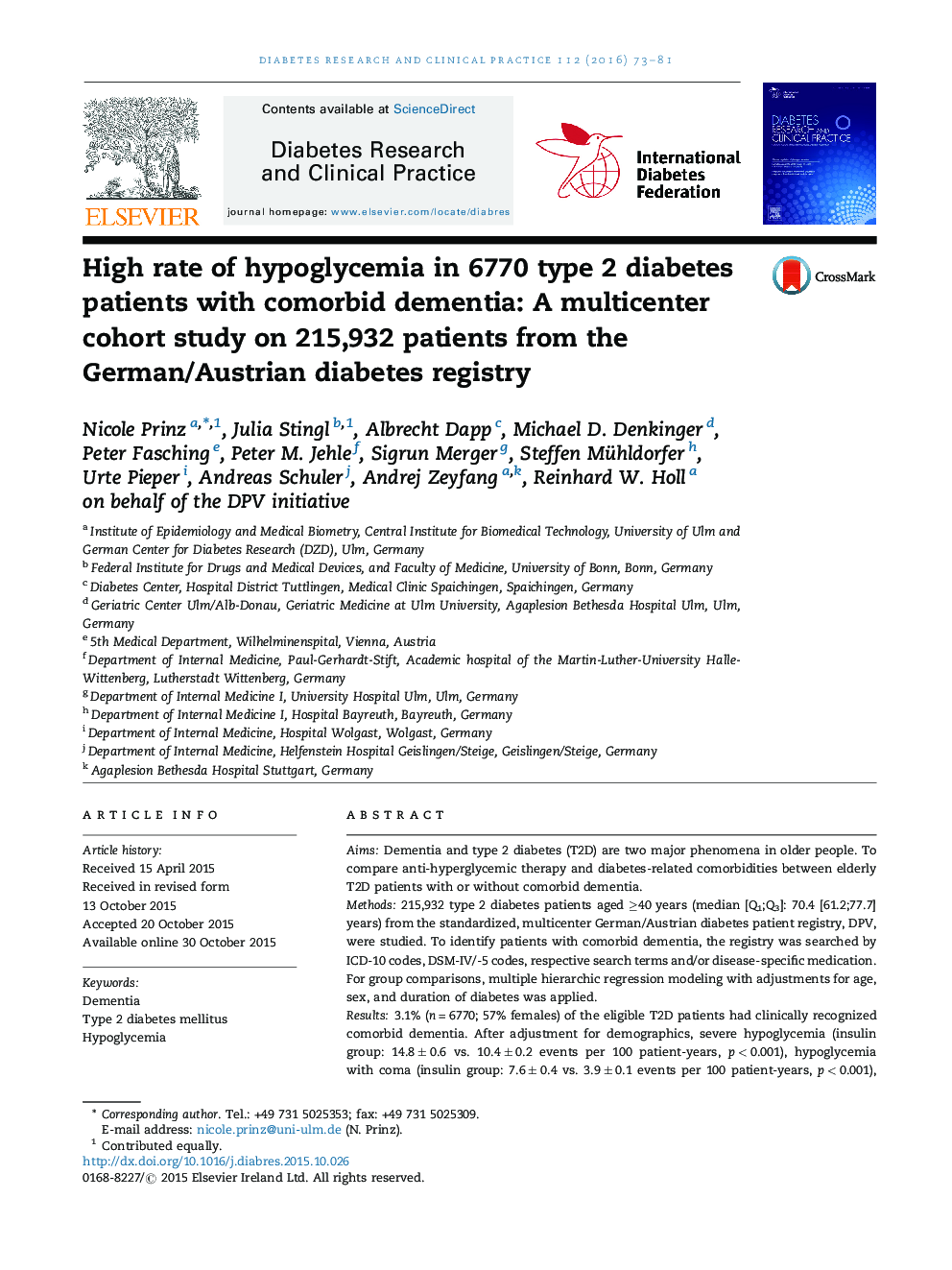| Article ID | Journal | Published Year | Pages | File Type |
|---|---|---|---|---|
| 5899101 | Diabetes Research and Clinical Practice | 2016 | 9 Pages |
â¢Real-life data analysis of a large number of German/Austrian elderly T2D patients.â¢Demented T2D patients had a higher rate of hypoglycemia and used insulin more often.â¢Metabolic control was comparable between patients with or without dementia.â¢Hypoglycemia risk due to tight glycemic control exceeds benefits in T2D with dementia.
AimsDementia and type 2 diabetes (T2D) are two major phenomena in older people. To compare anti-hyperglycemic therapy and diabetes-related comorbidities between elderly T2D patients with or without comorbid dementia.Methods215,932 type 2 diabetes patients aged â¥40 years (median [Q1;Q3]: 70.4 [61.2;77.7] years) from the standardized, multicenter German/Austrian diabetes patient registry, DPV, were studied. To identify patients with comorbid dementia, the registry was searched by ICD-10 codes, DSM-IV/-5 codes, respective search terms and/or disease-specific medication. For group comparisons, multiple hierarchic regression modeling with adjustments for age, sex, and duration of diabetes was applied.Results3.1% (n = 6770; 57% females) of the eligible T2D patients had clinically recognized comorbid dementia. After adjustment for demographics, severe hypoglycemia (insulin group: 14.8 ± 0.6 vs. 10.4 ± 0.2 events per 100 patient-years, p < 0.001), hypoglycemia with coma (insulin group: 7.6 ± 0.4 vs. 3.9 ± 0.1 events per 100 patient-years, p < 0.001), depression (9.9 vs. 4.7%, p < 0.001), hypertension (74.7 vs. 72.2%, p < 0.001), stroke (25.3 vs. 6.5%, p < 0.001), diabetic foot syndrome (6.0 vs. 5.2%, p = 0.004), and microalbuminuria (34.7 vs. 32.2%, p < 0.001) were more common in dementia patients compared to T2D without dementia. Moreover, patients with dementia received insulin therapy more frequently (59.3 vs. 54.7%, p < 0.001), but metabolic control (7.7 ± 0.1 vs. 7.7 ± 0.1%) was comparable to T2D without dementia.ConclusionsIn T2D with dementia, higher rates of hypoglycemia and other diabetes-related comorbidities were observed. Hence, the risks of a glucocentric and intense diabetes management with insulin and a focus on tight glycemic control without considering other factors may outweigh the benefits in elderly T2D patients with comorbid dementia.
